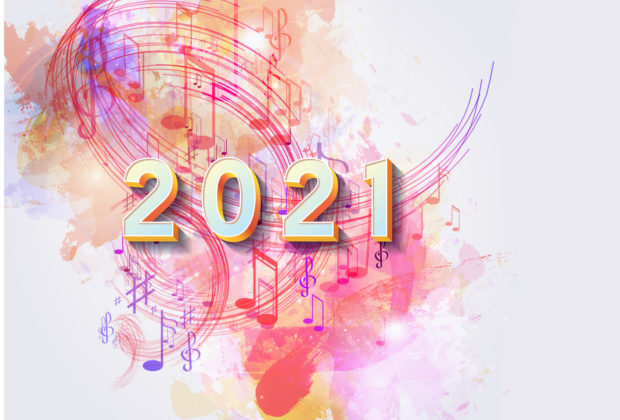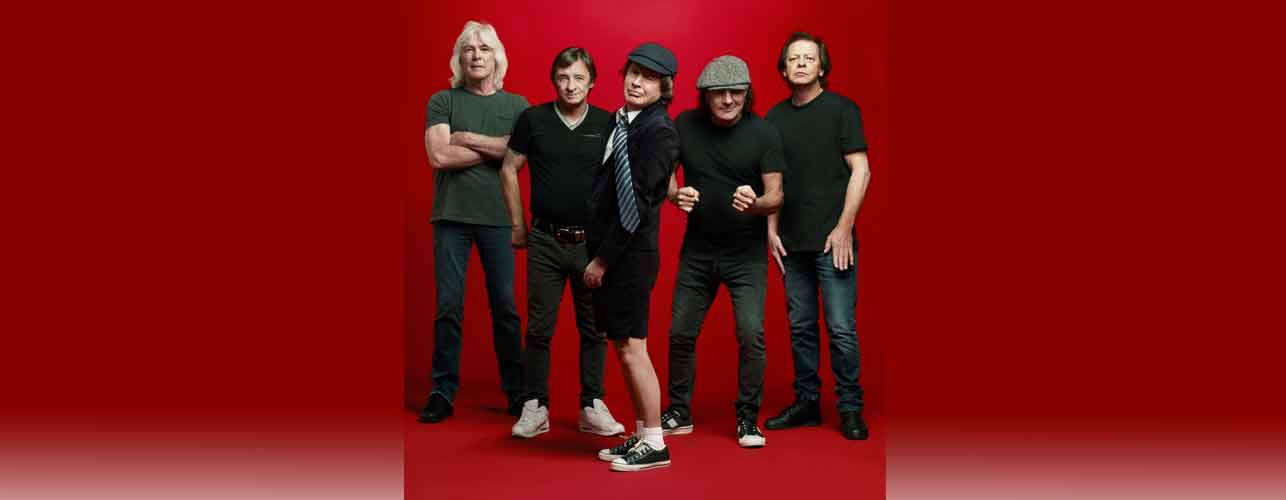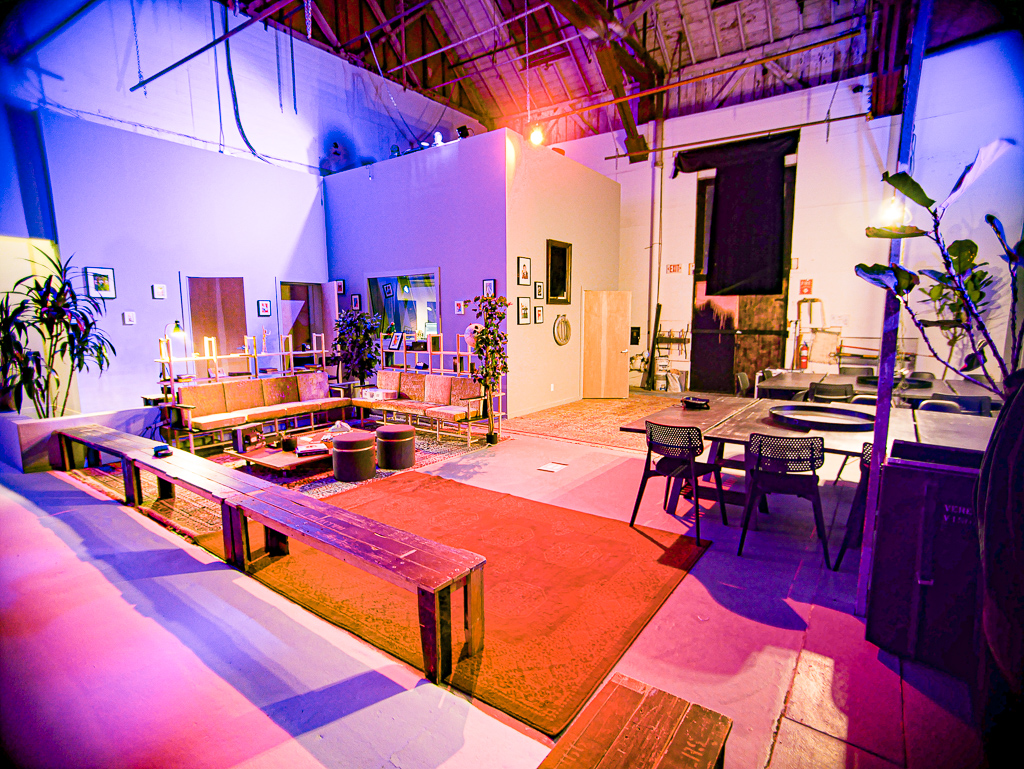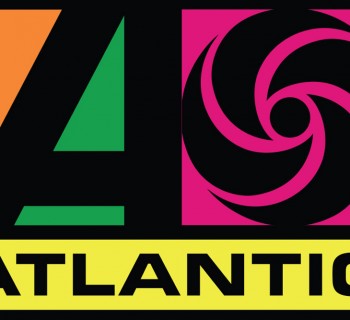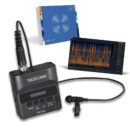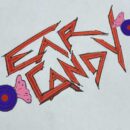Every year, Music Connection gathers a number of the industry’s most intriguing talent scouts to acquire perspective on their trade. Our 2021 edition kicks off with Joseph Aldulaimi, who signed indie rockers Smallpools to alternative distribution outlet ONErpm. Next comes Atlantic Records’ Keith “Keefa” Parker, whose clientele includes rappers Roddy Ricch and Ty Dolla $ign. Our penultimate discussion is with Patch Culbertson. His efforts at Big Loud Records have helped country acts like Florida Georgia Line achieve wild success. The article concludes with Allyson Coff, a rising star who joined 300 Entertainment in 2014.
We peppered this diverse set of notables with queries regarding everything from their opinion of TikTok as a discovery platform to how the pandemic has affected their jobs. The responses we uncovered are as honest as they are enlightening.
Keith “Keefa” Parker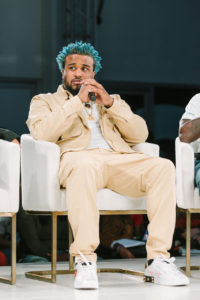
Vice President of A&R
Atlantic Records
How did you get into A&R?
I grew up around music. My dad ran Death Row Records back in the ‘90s. He was Suge [Knight]’s right hand until everything played out. Since I was a kid, it’s [been] something I was familiar with. It was all I was into and knew growing up. Music was something I was always intrigued about, because I was watching it in front of me at the highest levels.
Recommendations for people who want to get into A&R?
Have a purpose. Do it for something worth the time that you’re going to have to put into it, because it’s not your typical cubicle job. Find something you can attach yourself to and believe in. If it’s just to make money, that’s one thing. But for me, it’s [about] finding something that’s going to change the world.
Qualities that make you a successful A&R rep?
My commitment. I’m an all-in type of guy. If I find something that I’m interested in, I’m going to give it my all. With anything you do, you have to give your all to truly reap the fruits of your labor.
How do you discover talent?
Years ago, you had to go to shows or find deejays who were putting out mixtapes. Now, it’s almost at your fingertips. Some people go to certain platforms. I’m just all around, you know? I also know little dive bars. I’ve found artists at open mike type situations. Music is all around. It’s just whatever you’re into. For me, I like to see stuff in person and dig deep into it.
Do you prefer artists submit material through an attorney? Or are you attracted to people who find clever ways of getting your attention?
I’ve never dealt with an artist submitting music through an attorney or manager. People message me music and I listen. I might not respond. I will respond if it’s something I’m interested in. If it’s something that’s close, I’ll even hit people back like, “Keep working and sending me stuff.” But I’ll always allow musicians opportunities to send me material.
I go on Instagram Live a lot and I’ll post my email. I’ll have producers emailing me and I’m playing the songs they’re sending with 200 other people in the room. It’s almost impossible to not be able to get in contact with an A&R, because social media has made us so accessible.
How should artists contact you? Do’s and don’ts?
One thing to not do is spam email. That will turn me off. If you email me, I will see it. I’m very busy, so I can’t hit everyone back. Again, if I’m interested, [you] will most likely get a response.
What are the qualities you’re looking
for in artists?
The story and the live music. The story is very important, because it helps you understand the substance that you can anticipate hearing and feeling.
A work ethic, as well. A lot of artists get complacent. They’ll make a few songs and catch someone’s eye and feel like that’s it. If it’s a new artist who’s head down, hit the pavement running… Then let’s go. Don’t get caught up in everything else around you.
It’s different for everybody, but you have to have a good playlist before you put a project out. If an artist has 10 or 15 songs and they’re, like, “Yeah, I’m ready to put a project out,” that’s probably not the situation for me. I’d rather make 100 songs and sleep knowing that the work ethic is there and there’s this level of determination and passion attached.
Are there metrics beyond musical quality that will sway your opinion?
If you’re talking about higher-level artists, all of that is important. The live performance is important, because that’s what you’re selling. Stage presence is important. Seeing the interaction with fans and how fans react. It’s all important. The music is like the ticket, but the actual movie is the artist. People will buy a ticket, but once you go in to see the movie you’re evaluating the thing as a whole.
TikTok as a platform for talent discovery?
I have nothing against it, but the platform is making the musica little microwavable. Someone has a moment, but moments don’t always last. TikTok can make a song blow up overnight for a kid who doesn’t know anything about the business. Now, million dollar deals are getting thrown in this kid’s face. It’s fun for kids to watch, because they see the dances and everything, and it catches on. But the business is a whole other beast. A lot of kids that come from TikTok are not prepared for what they’re about to get into. It’s a good platform to promote artists that are already established.
Do you draw a distinction between album artists and singles artists?
I think you’ve got to get it how you live. One person might wake up and brush their teeth, take a shower and get dressed. The other person might wake up and run out the house. It’s not right or wrong. They’re all trying to reach the same destination. It’s all in the hands of the artist. If an artist can catch momentum from putting out singles, it’s great. But to have a career in music you have to put out albums. That’s the reality. An artist that’s single-heavy is great, because you can build up buzz for an album. Singles allow you time to prepare, but the ultimate goal is to put out albums.
What is the future of A&R?
It’s a position you can’t replace because there’s only so much that researchers can do. Researchers are not out in the field touching artists. A&R is always going to be lucrative because the A&R is the connection to the artist. Some artists have never met their reps at the label; they’re not even sure who their product managers are or their PR is. But the A&R is the one in the studio with them curating vibes and helping bring the music to life. Some artists don’t like to deal with the business, so the A&R is the bridge between the business and the artist. I don’t see anything changing from what it’s been 40 years ago.
What is your advice for artists?
Find your purpose and put it in the music. Continue to grow your artistry. It’s important for artists to learn different aspects of the music. Don’t just walk in, grab the mike and start recording. If your engineer can’t make it one night, your session shouldn’t be over. You can look up how to engineer and learn it within a week’s time. Learn how to produce. Learn your sound. If you leave your sound in the hands of your engineer, then your sound is only as good as their ear. And what they hear for it might be good, but you might hear something different.
What should artists look for in an A&R rep?
That’s all based on the artist. Some artists come to the table with their program ready to go and they just need the label machine to back it. You’re just kind of there for whatever. Some artists need more than that. Some artists need guidance. If you’re a newer artist, just vibe with the person. You have to have a relationship with the person that’s going to be your source to the label. Know whom you’re about to lay in bed with. Be on the same page. Make sure that the A&R understands you and you understand the A&R. You’ll know someone’s intentions off their vibes. If you feel uncomfortable, that’s not someone you want to do business with. •
Joseph Aldulaim i
i
West Coast Head of A&R
ONErpm
How did you get into A&R?
I went to University of Washington and the only music businesses in town were Sub Pop and Tooth & Nail Records. I didn’t know anybody at Sub Pop, but I did at Tooth & Nail. I started as an intern in their A&R department and fell in love with A&R.
I started a management company with my partner, Jeff Levin. Jeff was already integrated in the A&R system at Atlantic and a lot of the stuff we were managing ended up getting signed to Atlantic, so I went to A&R at Atlantic, Roadrunner and Fueled By Ramen, where I learned about development of artists on a larger scale.
Then, I left Atlantic to work at some startups. I learned a ton, but wanted to get back into making an impact with artists on the ground level. I spoke with different companies and ONErpm was the one I was really aligned with.
What are the qualities that make you a good A&R?
Every artist I sign is because I’m a fan. I’ve never signed any artist strictly because I thought it was going to be hot or was going to generate money. I want to be the authority on their catalog. When I say, “Hey, this is a good song, but you can do better,” they trust me because they know I live and breathe everything they’ve ever done. It comes from that trust with the artist, getting to know each other and fighting with them in the trenches.
How do you discover talent?
I’ve never found two artists the same way. Blogs were it for years. Nowadays, it’s a combination of everything. I’m looking at hundreds of Spotify playlists every week and some great research tools, like Indiefy. Of course, artists recommending artists is always something I get excited about.
Do you prefer that artists submit material through an attorney? Or are you attracted to people who find clever ways of getting your attention?
I’m open to all of it. I love and respect the lawyers I’m lucky enough to work with. I’m happy to get their calls or [calls] from managers. I read every email I get, every Tweet or Instagram DM. I’m always available.
How should artists contact you?
Use common sense. Don’t call me 15 times on a Sunday if I don’t know you. Email is always great. More and more artists are reaching out on Instagram. That’s totally fine, too.
What are the qualities you’re looking for in artists?
The more of a vision the artist has, the more we can do to support and amplify that vision. There’s nothing worse than a bunch of 50-year-old dudes telling a 22-year-old woman how to market herself to 16-year-old kids.
Are there metrics beyond musical quality that will sway your opinion?
There’s a weighted average to a lot of these things. They all work together to come up with a score. It starts and ends with––do I love the music? And then––does the artist give a shit? Are they working for themselves? Is thisa train that’s leaving the station? Do other people give a shit about it? Is it clicking? And, of course––is the live show there? The big one is––is this person a star? Are they a compelling figure who has that X factor? That’s always something we’re looking for. But every artist is going to be a combination of those things. It starts and ends with the song.
Has your work been affected by the pandemic?
When the pandemic started, nobody knew how long it was going to last. But we took time as a company to reassess who we are and make sure we come out of this thing stronger. In the beginning, there were no right or wrong answers about what to do. People were asking, “Should I put a song out? Or should I wait?” It was just kind of, “Whatever feels right for you.” We had to postpone a lot of releases to make space for people of color, making sure that we are being mindful of the climate and that voices that need to be heard are being heard.
TikTok as a platform for talent discovery?
I think TikTok is incredible. Beyond music, there’s some of the most creative, cutting-edge fare on there. We’ve seen how songs can rise and become overnight successes. Then the job comes to the rest of us in the industry to foster this artist’s career beyond the flash-in-the-pan moment.
Do you draw a distinction between album artists and singles artists?
I’m always drawn to album artists. There is real significance in the album format. I also think that it’s a great way for artists to summarize chapters of their lives. Mentally, it’s a way to feel that they’re progressing. For artists to be able to encapsulate a period of their lives is very important. There are singles artists who maybe give you the song of the summer. Those artists are always going to be important. But it’s the album artists that people end up getting tattooed on their bodies.
What is the future of A&R?
Research is everything for a lot of people. That’s only going to become more and more important. However, with ONErpm we believe in artist development in a pretty old-school way. We don’t think there are any skipped steps. And while the way that we find artists might be faster these days, it still takes just as much work––or more––to build a lasting career.
What is your advice for artists?
Write better songs. And don’t be comparative. Being comparative can be incredibly stifling. Constantly looking at someone else isn’t going to help you move forward. All you can do is be the most real, authentic version of yourself and write the best songs possible.
What should artists look for in an A&R rep?
Find somebody who you really connect with. You’re into similar music. You have the same core ethics and beliefs. You have similar definitions of success, short-term and long-term. Patience is really important, for both the artist and the A&R. •
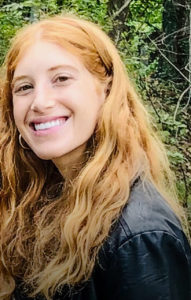 Allyson Coff
Allyson Coff
A&R
300 Entertainment
How did you get into A&R?
In college, I was introduced to a ton of music. And I was like, “I want to have a radio show and bring music to the people.” Having that show, I became more and more into music. Once I started introducing people to new artists, I became addicted to that. It was the best feeling in the world having people call in and being like, “Oh my God, I love that song.” Then, getting to know artists and interviewing them for the show, I realized I wanted to be on the creative side. I would meet these artists and feel super passionate about spreading the word.
Recommendations for people who want to get into A&R?
Listen to as much music as you can. Find where you’re passionate and get to know artists. As you get close to artists, you start to understand their world. Having a good understanding of artists really helps in A&R, because you’re that person that’s communicating their vision to everyone else.
Qualities that make you a successful A&R?
Passion is really important. Being persistent is important. Especially when an artist is starting out, you really have to help carry the torch and get other people excited. Being a great communicator is important, because you’re the one that’s talking the most to the artist and you’re also communicating their vision to other people.
How do you discover talent?
I’ll look at all the streaming sites. I’ll watch things on social media. Also, people send me things all the time. Some people know the sort of tastes I like. And I’ll also get a ton of random things. I always check out anything that’s sent over. So it’s a bunch of different ways. You never know where you might find something. I’m open to all of it.
How should artists contact you? Do’s and don’ts.
Email is best. I check my email at all times and don’t miss any. Social media can also work. Sending clear links to music is helpful. Also, anything that can provide context on the artist, whether it’s a vision board or their social media accounts, just to fully understand what they’re about. It’s helpful to know what they’ve been doing, but also what they see for the future.
Qualities you’re looking for in artists?
Talent is definitely one. Once you get past that, you look at work ethic. Do they have a point of view? Does the music stand out? Do they have something to say? How badly do they want it? Are they good at communicating with their fans? Five years from now, are people going to be caring about this artist? And can they perform live? Can they hold an audience? Are they special?
Metrics beyond musical quality that will sway your opinion?
Having a fan base is the best thing an artist can have. That shows that they have a base of people that care about them. Social media engagement is really important. Personality is key. And then how badly they want it, because it can be a rocky road getting there.
TikTok as a platform for talent discovery?
I think TikTok’s a great way to expose artists. It’s a way for things to blow up really fast. And then you have to make a decision whether you think it’s just a quick thing or an artist with longevity.
What is the future of A&R?
Even in the amount of time I’ve been doing it, it’s changed a bunch. I used to look at tons of blogs and now it’s more social media and streaming services for discovery. It’s going to continue changing. Live shows used to be huge in what I would look at and I haven’t been able to do that as much. But as live music comes back, that will come back again. It’s going to continue to keep changing and, as an A&R, you just have to adjust. There’s always going to be a new platform that’s helping artists to reach people.
What is your advice for artists?
Come up with a clear vision for who you are and then start doing it. Whether it’s releasing music, putting out videos, going on social media, whatever it is, start doing it. And know who you are when you’re doing it, because the artists that stand out really know who they are and have a clear vision.
What should artists look for in an A&R rep?
Someone who understands them, will fight for them and is passionate about their music. Someone who will walk through walls and do whatever it takes for them to be successful. There are times when artists can’t be in the room where their music’s being discussed and you need someone to represent you properly. So have someone that fully understands your vision, will really fight for you and that you trust. •
 Patch Culbertson
Patch Culbertson
Vice President of A&R
Big Loud Records
How did you get into A&R?
Music’s been a passion of mine ever since I can remember, but it kind of rode sidecar to what I was pursuing. I just didn’t understand the professional options out there. When I got to college, I was pre-med but also heavily involved in putting on shows.
I think it was my junior year. I was standing on the side of the stage and looking out at the crowd. They were spending more time in the air than on their feet and something clicked. I needed to know more about this business.
I started taking informational interviews. I got an internship at a Triple-A non-pop station on the Cape. When I went back to school, I would drive from the middle of Vermont down to Poughkeepsie, NY, take the train in, do two to three interviews, drive back and try to make it to my night classes. I was really passionate about it, but I couldn’t find an in. After I graduated, I got an internship in Boston at Mass Appeal Entertainment, [handling] social media strategies for artists. I was still interviewing in New York and L.A. [Then I started at Republic Records] as an A&R Coordinator in their New York office. I was there almost nine years and then joined the Big Loud team in 2017.
Recommendations for people who want to get into A&R?
For A&Rs, music has to be a passion, rather than a hobby. It’s about identifying great artists and great songs. There are opportunities in A&R not only on the label side but also in publishing, even in entertainment law.
What are the qualities that make you a successful A&R?
Being able to understand audiences and reading through the noise. We have to be able to understand what’s going on under the hood. It’s about being able to identify great songs, great artists and also understanding the audience data.
How do you discover talent?
There isn’t one particular way. A seismic shift happened in terms of pace and technology. I think back to some of the artists I’ve signed; the ways I discovered them are completely defunct. Live shows are crucial and also word-of-mouth.
How should artists contact you?
No one wants an email that says, “Will you
sign me?” If a creative is reaching out and pitching great song ideas, we are all ears. On the artist front, I’m always interested in hearing from artists who have great material. Be patient with our response. There is a fine line between persistence and annoyance.
Qualities you’re looking for in artists?
If the artist knows themselves. Are they a star? There are certain artists who have that star quality where you say, okay, this is somebody special. It’s also those who show initiative. And then, do you see them on socials?
Has your work been affected by the pandemic?
Yeah, I’m working harder than ever. It has been tough on the live industry; I don’t want to discount that. But country [music] is in a unique situation during this pandemic. It’s one of those genres that exploded as people were working from home. People fell back on children’s music, country music and some of the classic rock things, looking for that feeling of comfort. We saw a huge benefit from that. We’ve also had to think strategically about how to break new artists.
TikTok as a platform for talent discovery?
I love it. I think it’s great that, with the pandemic, we’re looking for other ways that fans can engage with artists and discover songs. It’s only done good things for our business. TikTok is, far and away, the one that everyone is getting under the hood with. It came on a lot faster than anybody anticipated. Triller is the other platform where a lot of our energies are focused.
Do you draw a distinction between album artists and singles artists?
We’re in the business of [promoting] the greatest hits with whomever we’re partnering. There’s data that can aid in that decision of whether you should put out a body of work versus singles. You benefit for a lot of reasons by going single-by-single in our streaming ecosystem. For example, on Spotify’s Release Radar, putting out six songs allows for six breakouts. So there are exposure strategies, but there’s still value to the album.
What is your advice for artists?
It comes back to initiative. Always be creating. Understand your artistry. Collaborations are key. Show initiative in terms of putting out music and content. Know your audience and cultivate that audience from a live and social measure.
What should artists look for in an A&R rep?
It has to be a great fit. Make sure you have somebody that is going to elevate your career and creativity and can be a good coach for you. You don’t want a yes man or a yes woman. You want somebody that is a great sounding board but is also going to challenge you.
Also, have somebody that is going to champion you, because a lot of labels have hundreds of artists. Make sure you’ve got somebody that is going to make sure you’re a priority.

